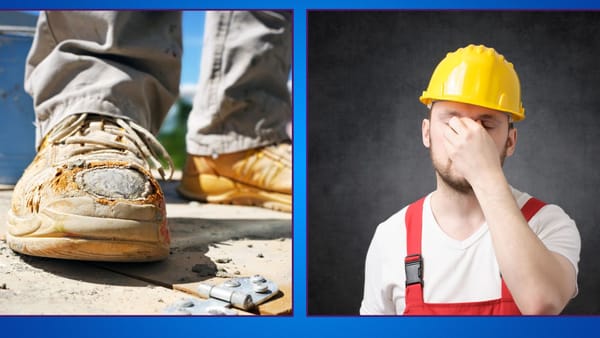Ever have a burning sensation in your foot that feels like you're walking on a hot coal? Yeah, me too. I thought it was just a weird thing that happened to me from time to time. But it turns out, I was suffering from a condition called Morton's neuroma. Here's everything you need to know about this pesky little condition.
What is Morton's Neuroma?
Morton's neuroma is a condition that affects the nerve endings in your feet. It's also commonly known as a pinched nerve. The condition is characterized by a sharp, shooting pain in the ball of your foot. It can also cause tingling, numbness, and burning sensations.
Morton's neuroma typically develops over time. It is most often caused by wearing high heels or tight shoes that put pressure on the nerve endings in your feet. However, it can also be caused by repetitive motions, such as running or playing tennis.
Who is at risk for developing Morton's neuroma? Women are more likely than men to develop Morton's neuroma. This is because high heels and tight shoes are more commonly worn by women. Other risk factors include being middle-aged, having bunions or hammertoes, and being flat-footed.
How is Morton's neuroma treated? In most cases, Morton's neuroma can be treated without surgery. Treatment typically involves wearing wider shoes with plenty of toe room and using inserts or pads to relieve pressure on the affected area. Physical therapy may also be recommended to stretch the muscles and tissues around the affected nerve endings.
In severe cases where other treatments haven't worked, surgery may be necessary to remove the damaged tissue around the nerve endings. This procedure is typically done as outpatient surgery and has a high success rate for relieving pain associated with Morton's neuroma.
Conclusion:
If you've been experiencing sharp pains in your feet accompanied by burning, numbness, or tingling sensations, you may be suffering from Morton's neuroma. This condition affects the nerve endings in your feet and is most often caused by wearing high heels or tight shoes.
Treatment typically involves wearing wider shoes with plenty of toe room and using inserts or pads to relieve pressure on the affected area. In severe cases where other treatments haven't worked, surgery may be necessary to remove the damaged tissue around the nerve endings.
If you think you may have Morton's neuroma, talk to your doctor so they can diagnose and treat the condition accordingly.
One More Thing:
If your thinking that a new pair of shoes might help, but you don't know where to start, don't worry, we got you covered. We've done the research by searching numerous blogs, read countless articles and searched Amazon for the reviews that customers were writing on the shoes they bought, we got a pretty good handle on the topic. So we compiled a list of the 5 best shoes for the problem and have good picks for both men and women.
So click the button below and read about what we found. When you found your the best shoe for you, click the button under the item and check the price on Amazon. Your feet will thank you, and maybe your knee and your legs too!









